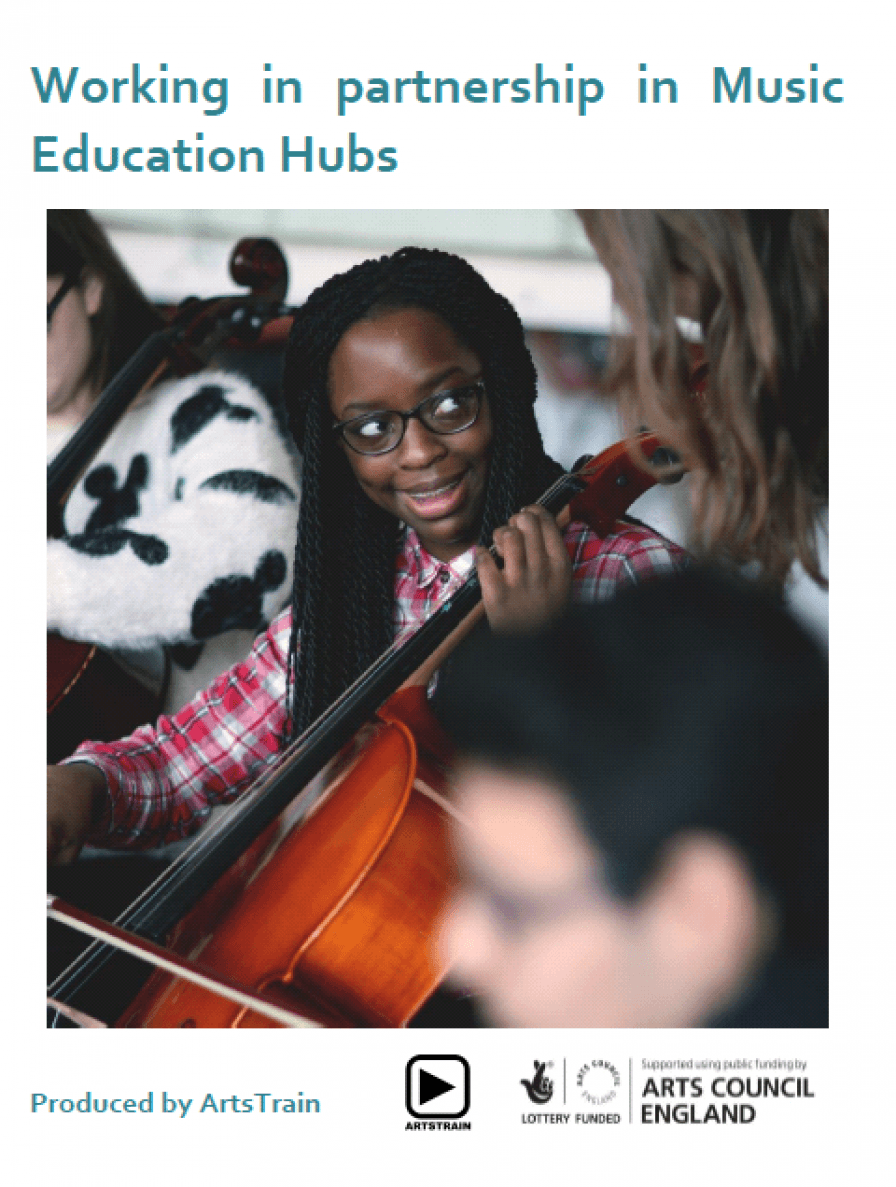Working in Partnership in Music Education Hubs

This guide is all about working with or participating in a Music Education Hub. It is designed for anyone who is involved, invested or interested in providing musical opportunities for children and young people in England. It contains practical advice based on independant research carried out by ArtsTrain, a music organisation working across South London to engage young people in music.
The attached framework was based on research carried out by ArtsTrain looking at their work with Music Education Hubs in the London Boroughs of Bromley and Bexley.
Following the successful delivery of two flagship annual programmes, Arts Council England have recognised ArtsTrain’s work Bird College (Bexley) and Bromley Youth Music Trust as examples of best practice. The quality of the programmes was highlighted at the 2013 Music Mark conference, asked to present at the 2015 Music Education Expo, awarded a Music for Youth Award and acknowledged by funders such as Youth Music who have provided year-on-year funding.
We compared our work against three quality frameworks produced by Arts Council, Youth Music and The Young Foundation. From this research, we established eight key areas of best practice. The table below shows how the programmes met each theme:
Aligning visions
- Project planning began 12 months in advance
- A range of partners were involved in the initial scoping sessions
- Time was allocated within the hub meetings to explore areas of joint interest
Establishing need
- Mapping was carried out to identify who was delivering music and where the gaps were
- Information was collected from our wider networks, for example Community Voluntary Sector Forums
Resourcing the programme
- Partners worked together to raise funding for the programmes
- Appropriate spaces were identified within the local areas
Designing the programme
- A diverse range of young people were brought together from across the boroughs
- Participants were encouraged to express themselves, have ideas and improvise
- A mix of approaches and styles was used to engage the participants
- Time was built in for tutors to shape, reflect and adapt the programme as it progressed
Recruiting music leaders
- All partners were involved in the recruitment process
- Young people were involved in selecting the most appropriate music leader
- Jobs were advertised locally as well as through industry recruitment platforms such as Arts Jobs
- Music leaders were selected from diverse musical backgrounds
Capturing impact and embedding success
- High quality videos, journals and recordings were collected
- Young people’s perceived skill levels were captured at the start, mid-way through the project and at the end.
Bringing other partners on
board
- A partnership was built with Serious (an NPO) to provide high profile performance opportunities
- Partnerships were developed with Churchill Theatre and Roundhouse to signpost young people onto wider creative programmes
We used the eight themes to bring together some ideas and suggestions for delivering a high quality partnership programme in a Music Education Hub. The attached framework and supporting reseach paper can be used as a guide to improving practice across a hub partnership.
